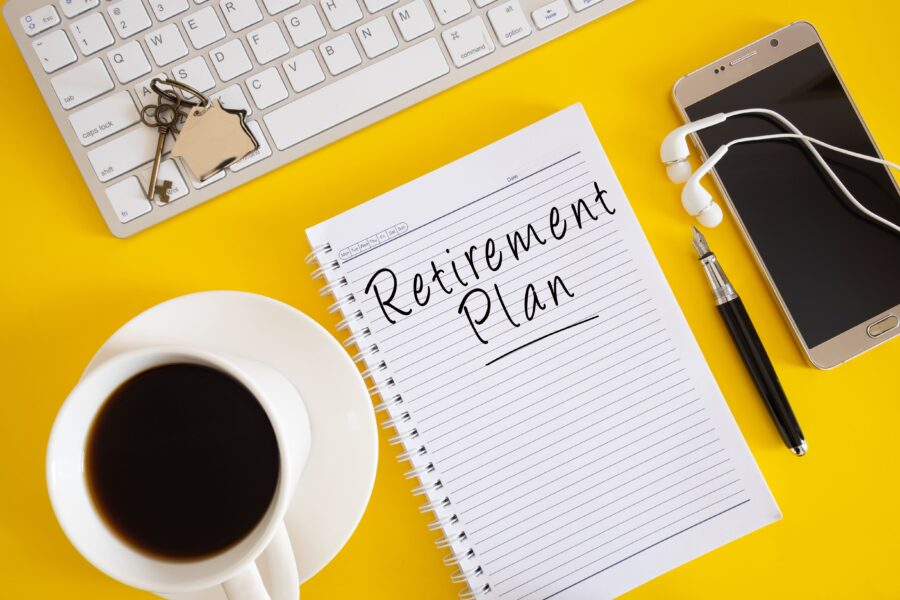Preparing for retirement checklist
Need a retirement plan? Preparing for retirement can be an emotional experience, but this necessary and practical process can help you manage your finances, make decisions and give you confidence in your future.
Here, with the help of Money Smart, we look at the things to consider when planning for your retirement. There is also a downloadable checklist for you to use.
Make a retirement plan
Your retirement plan can be as detailed or as simple as you like but should include the following:
- Timing – when do you plan to retire?
- Lifestyle and priorities – what are your priorities in retirement?
- Income and living costs – what are your current daily living costs? Does your retirement budget add up? Do you need to change your priorities and make adjustments so that you can live comfortably in retirement?
- Plan for the future – Do you know how much income you will need in retirement?
Timing
When you retire will depend on your health, work options, finances and personal situation. There’s no set age you need to be to retire. If you have a partner, also consider when they will retire.
Whether you are retiring in 2 years or 10 years, knowing how much time you have helps you make a retirement plan.
Discuss your retirement priorities with a partner, friend or expert. If you need professional advice to plan for retirement, see a professional financial advisor.
Lifestyle and priorities
Think about how your retirement lifestyle will look. What are the things that matter most?
Consider the following:
- your living costs
- social life and recreational activities
- staying active and healthy
- volunteering or community involvement
- plans for changes in health or aged care
- supporting family, children or grandchildren (if any).
Keep working, reduce hours or retrain
Continuing to earn an income, even part-time, can help your retirement savings last longer. If you want to keep working, options include:
- Job Switch — explore options to retrain or seek part-time work.
- Transition to retirement — if you’ve reached your preservation age, you can use some of, and keep contributing to, your super while working.
- Work Bonus— if you get the Age Pension, you can earn up to $300 per fortnight from work before your pension payment reduces.
Plan where you will live
If you own your home:
- If you still have a mortgage, consider how and when you will pay it off. You could use some of your super (when available) to pay it off.
- Consider downsizing to free up money. You could pay off your mortgage, support your lifestyle, or relocate to be closer to family or services. Before going ahead, check the tax impact and whether it will affect your government benefits. (See our resources for downsizing here)
If you’re renting:
- You may be eligible for an extra payment if you rent and get payments from Centrelink, like the Age Pension. To find out more, see rent assistance on the Services Australia website.
- If you’re struggling with rent or unsure about your tenancy rights, see rent steps to take on the National Debt Helpline website.
Income and living costs
How much money you’ll need for living costs in retirement depends on your lifestyle priorities and what you can afford. For many, retirement income will be a combination of superannuation and the Age Pension. If you don’t have much super, you may be more reliant on the pension. If you do have super, think about how and when to withdraw it. You may also have some savings or investments.
Work out your living costs
Consider:
- Housing — rent or mortgage, rates, home and contents insurance, maintenance
- Utilities — electricity, gas, water, phone, internet, streaming services
- Food — fresh food, groceries, takeaway, dining out
- Clothing and household goods — clothing, personal care, furniture, household appliances
- Health and leisure — health insurance, health care, social activities, fitness, holidays, gifts
- Transport — car registration, insurance and running and repair costs, public transport.
As a rule of thumb, allow for two thirds of your current living costs. This is a useful guide, that assumes reduced costs for work and that you’ve paid off your mortgage.
Your spending may be higher when you first retire. For example, if you plan to travel or update your home. You may also need to allow more for health care and medication as you get older.
Use the budget planner to work out your living costs
Get your super income
You can get your super when you retire and reach your ‘preservation age’. That is between 55 and 60, depending on when you were born. Or when you reach 65, even if you’re still working.
When you are eligible to withdraw your super, your main options are:
- an account-based pension
- an annuity
- a lump sum
- or a combination of these.
You could also consider a transition to retirement strategy. You can use some of, and keep contributing to, your super while working. Contact your super fund to discuss your options.
Claim government benefits
From age 67 (or earlier, if born before 1957), you may be eligible for government benefits such as:
- Age Pension
- Pensioner concessions
- Health care benefits
- Tax offsets.
For questions about government benefits, call Centrelink’s older Australians line on 132 300. Ask to speak to a Financial Information Service (FIS) officer (for free). The helpline is open Monday to Friday, 8:00am to 5:00pm.
Use the retirement planner to estimate your income
Add in savings and investments
If you have money in savings, this could top up your retirement income.
If you have investments like shares or investment property, think about whether to keep or sell. Check the costs, tax implications and whether it will affect your government benefits.
Plan for the future
Grow your income
If you can, consider contributing more to your super. Use the super contributions optimiser to see how to get the biggest boost.
Save for an emergency
Save an emergency fund to give yourself a safety net for unexpected bills like repairs or medical costs.
Pay off debt
If you have a mortgage or other debts, consider how best to pay them off. For tips on how to do this, see get debt under control.
Make an estate plan
Decide what you want done with your assets when you die. Check you have an up-to-date will and powers of attorney, and a nominated beneficiary for your super.
Get help if you need it
- To get advice about your super income options, talk to your super fund.
- For questions about government benefits or retirement, call Centrelink’s older Australians line on 132 300. Ask to speak to a Financial Information Service (FIS) officer (for free). The helpline is open Monday to Friday, 8:00am to 5:00pm.
- To get professional advice on planning for retirement, see financial advice.
- For help with tax matters, see how tax applies to your super withdrawals on the Australian Taxation Office (ATO) website. Or see a tax professional.
The governments Money Smart website also has many planners, tools and calculators that you can use to assist in your retirement planning. Visit their website by clicking HERE.
Downloadable our Retirement Plan Checklist by clicking HERE.
Source: https://moneysmart.gov.au/retirement-income/prepare-to-retire











